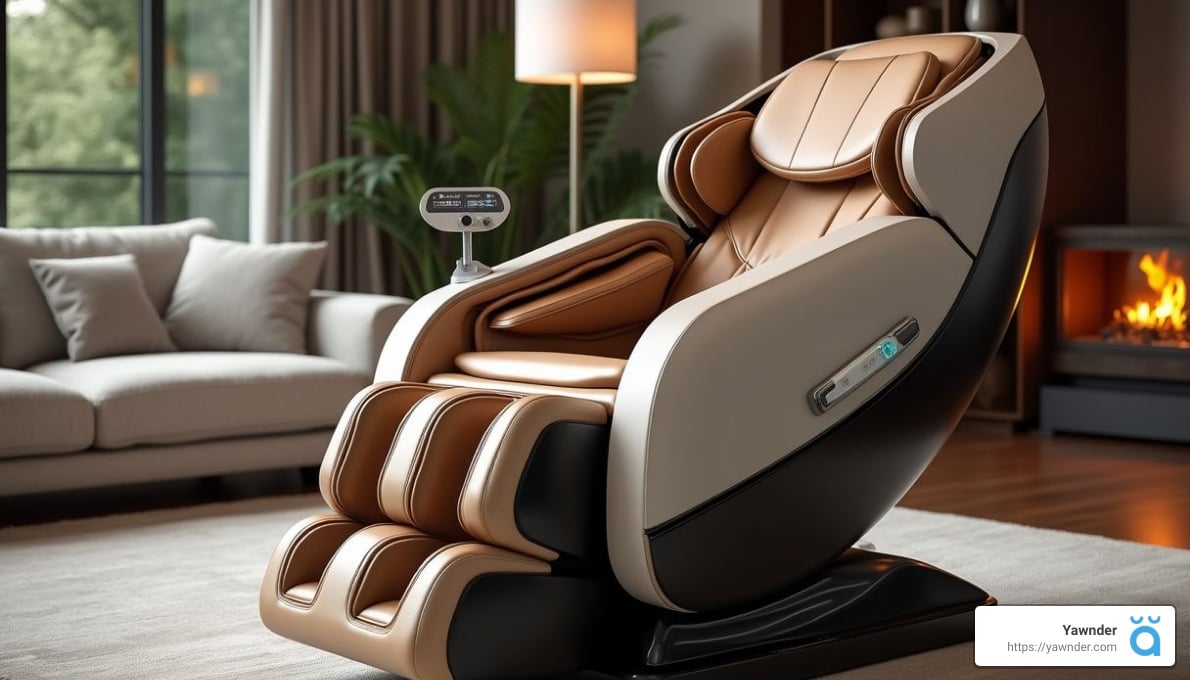The Ultimate Guide to Understanding Why Your Feet Get Hot When You Sleep
Why Do My Feet Get Hot When I Sleep?
If you’ve ever asked yourself, Why do my feet get hot when I sleep? you’re certainly not alone. Many individuals experience this discomfort, which can disrupt a good night’s rest. Understanding the reasons behind hot feet during sleep is crucial not only for improving sleep quality but also for overall health.
When we sleep, our body’s core temperature naturally lowers. In response, mechanisms like distal vasodilation kick in, increasing blood flow to our extremities, including our feet. This process helps release heat. However, sometimes this increased blood flow can lead to a sensation of burning or excessive heat in the feet. Other contributing factors include nerve dysfunction, hormonal shifts, and various circulatory issues.
I’m Ben Trapskin, the creator of Yawnder. My own battles with sleep disturbances inspired me to explore topics like why do my feet get hot when I sleep. In this guide, I aim to share valuable insights, solutions, and effective strategies to enhance your sleep experience.
Common Causes of Hot Feet at Night
Understanding why do my feet get hot when I sleep involves delving into various underlying causes. Hot feet can arise from several sources, including nerve damage, vitamin deficiencies, fungal infections, hormonal changes, and specific lifestyle factors. Let’s explore these in detail.
Nerve Damage
One of the most common reasons for hot feet at night is nerve damage, often referred to as neuropathy. This condition affects peripheral nerves in the feet, leading to sensations of burning, tingling, or numbness. Key types of neuropathy include:
– Diabetic Neuropathy: High blood sugar levels damage nerves gradually, affecting nearly 13% of Australians with diabetes.
– Small Fiber Neuropathy: This involves damage to the small nerve fibers responsible for transmitting pain and temperature sensations, commonly leading to burning and numbness, especially at night.
Vitamin Deficiencies
Lacking essential vitamins can contribute significantly to hot feet. Deficiencies in vitamins such as B12 and folate can lead to nerve damage and associated discomfort:
– Vitamin B12: A deficiency can affect up to 20% of individuals aged 60 and older, causing nerve-related issues.
– Folate: Low levels may result from poor diet or malabsorption, leading to similar symptoms.
Fungal Infections
Fungal infections, particularly athlete’s foot, can also create a sensation of heat and itchiness in your feet. This condition thrives in warm, moist environments, leading to symptoms such as:
– Itching and burning
– Redness and inflammation
– Peeling skin
Treating these infections often involves antifungal creams and diligent foot hygiene.
Hormonal Changes
Shifts in hormones during pregnancy, menopause, or conditions such as hypothyroidism can cause increased blood flow to the feet, making them feel hot.
– Pregnancy: Blood flow increases to support fetal development.
– Menopause: Hot flashes and night sweats can contribute to sensations of heat in the feet.
– Hypothyroidism: This condition slows metabolism, potentially affecting blood circulation and leading to a hot foot sensation.
Lifestyle Factors
Certain lifestyle habits can exacerbate the feeling of hot feet at night:
– Improper Footwear: Tight shoes that don’t allow your feet to breathe can trap moisture and heat.
– Smoking: Increases the risk of poor circulation and nerve damage.
– Alcohol Use: Excessive consumption can lead to peripheral neuropathy.
– Stress: Heightened stress levels may impair your body’s ability to regulate temperature.
Recognizing these causes is the first step toward addressing the issue effectively.
How to Cool Down Hot Feet at Night
If you’ve ever wondered, Why do my feet get hot when I sleep? and are looking for solutions, you’ll be pleased to know there are numerous strategies to help keep your feet cool and promote better sleep.
Home Remedies
Simple home remedies can provide immediate relief. Here are some tried-and-true approaches:
– Cool Water Soak: Soaking your feet in cool water for about 15 minutes before bed can help regulate their temperature.
– Ice Water Bottle: Use a chilled bottle of water at the foot of your bed to provide a cooling sensation.
– Fan Placement: Position a small fan to blow air directly onto your feet, effectively dissipating heat.
– Cold Socks: Chilling a pair of socks in the refrigerator before wearing them to bed can provide a refreshing touch.
Lifestyle Changes
Certain lifestyle adjustments can help minimize episodes of hot feet:
– Choose Proper Footwear: Opt for breathable shoes made of natural materials, avoiding tight or non-breathable options.
– Maintain a Healthy Diet: A well-balanced diet rich in vitamins, particularly B12 and folate, supports nerve health.
– Regular Exercise: Physical activity boosts circulation and helps maintain a healthy weight, reducing foot strain.
– Limit Toxins: Reducing alcohol and tobacco consumption can significantly alleviate nerve issues.
Medical Treatments
If home remedies and changes in lifestyle do not yield adequate relief, consult with a healthcare provider. They can explore various medical treatments:
– Gabapentin and Pregabalin: These medications can help manage nerve discomfort related to neuropathy.
– Antifungal Creams: If a fungal infection is at play, these topical treatments can help alleviate symptoms.
– Immunosuppressive Medications: For inflammatory or autoimmune conditions, such medications may help reduce inflammation and its associated symptoms.
Addressing the underlying causes of your hot feet is essential for long-term solutions. If discomfort persists, seeking professional help for a comprehensive diagnosis can guide you toward effective treatment.
By understanding the causes and implementing these strategies, you’ll be better equipped to combat the issue of hot feet at night and enjoy a more restful sleep.


















